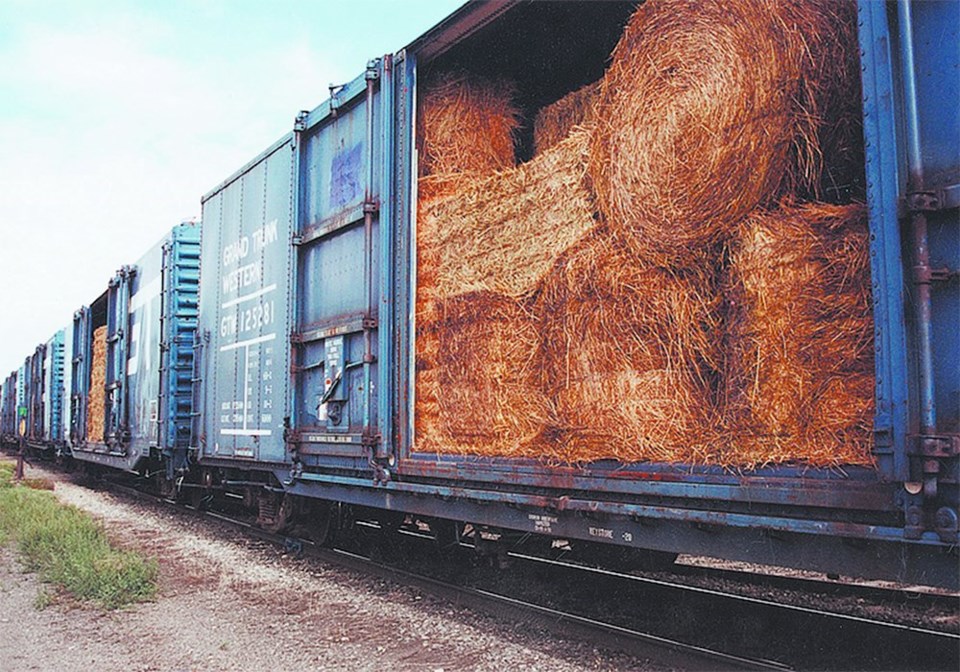When Rob Somerville received a truck load of hay donated by eastern Canadian farmers, it was a morale boost as much as anything.
"For us, it was the psychological lift that it provided that was every bit as valuable, or even more valuable, then the hay itself," said Somerville.
The hay donations are designed to help western cattle producers who are struggling to find enough feed in the wake of devastating drought.
A similar initiative in 2002 called Hay West sent hay donations from Eastern Canada to western Canadian producers.
Now, the Canadian Federation of Agriculture is organizing another version of Hay West.
Somerville said the hay will be welcomed not only due to the severe need but to bring optimism to the sector and let Prairie ranchers know they are not alone.
"It was a tough year," said Somerville of 2002, "and here something good happened and we were very grateful to get it."
He said he applied for the shipment hay through the organizers of Hay West not knowing if he would receive the feed for his cattle operation until he got a call to arrange to pick the hay up at a rail siding north of his Endiang, Alta., ranch located north of Hanna.
Tucked into one of the bales was a note from a Quebec farm located 90 minutes northwest of Montreal, with a name, phone number and message of encouragement.
"Bonne chance!" read the note.
It's a message Somerville has kept pinned up for nearly two decades.
With the help of his son who just returned from an exchange trip in Quebec, Somerville said he reached out to the French-speaking couple to express his gratitude.
Through that call, Somerville said he learned the donor of the hay was helped out with a generator during the Quebec ice storm in 1998, which helped save their farm and the couple wanted to do something to pay that act forward.
"Sometimes it feels like maybe Alberta gets isolated — very inward looking. Something like this Hay West builds awareness that Canada is a big country, There's more to Canada than Alberta," said Somerville.
Keith Currie, Canadian Federation of Agriculture vice-president, said prairie ranchers' need for hay will likely be even more critical this year than it was in 2002.
"We're looking at the immediate danger of livestock that are suffering because of no feed and we need to find a quick remedy for that as quick as we can," said Currie.
As well, helping producers hold onto breeding stock lessens the extent of a huge cattle sell-off expected this fall.
The concept of Hay West's original program will be replicated. But to do so, those who came together last time will need to do so again.
"We need to secure feedstock first and foremost and we need to make sure we have adequate transportation whether it's by truck, rail or a combination of both," said Currie. "And then we need someone on the other end co-ordinating exactly where it needs to go and how we get the feedstock to the people."
That's going to require help from the public and private sector as well as money, he added.
"Hopefully, we get it pulled together sooner rather than later because obviously the need is now," said Currie.
Currie said those looking to help with either hay, donations or transportation can reach out to CFA and the organization is hoping to have more details about Hay West 2021 shortly.




